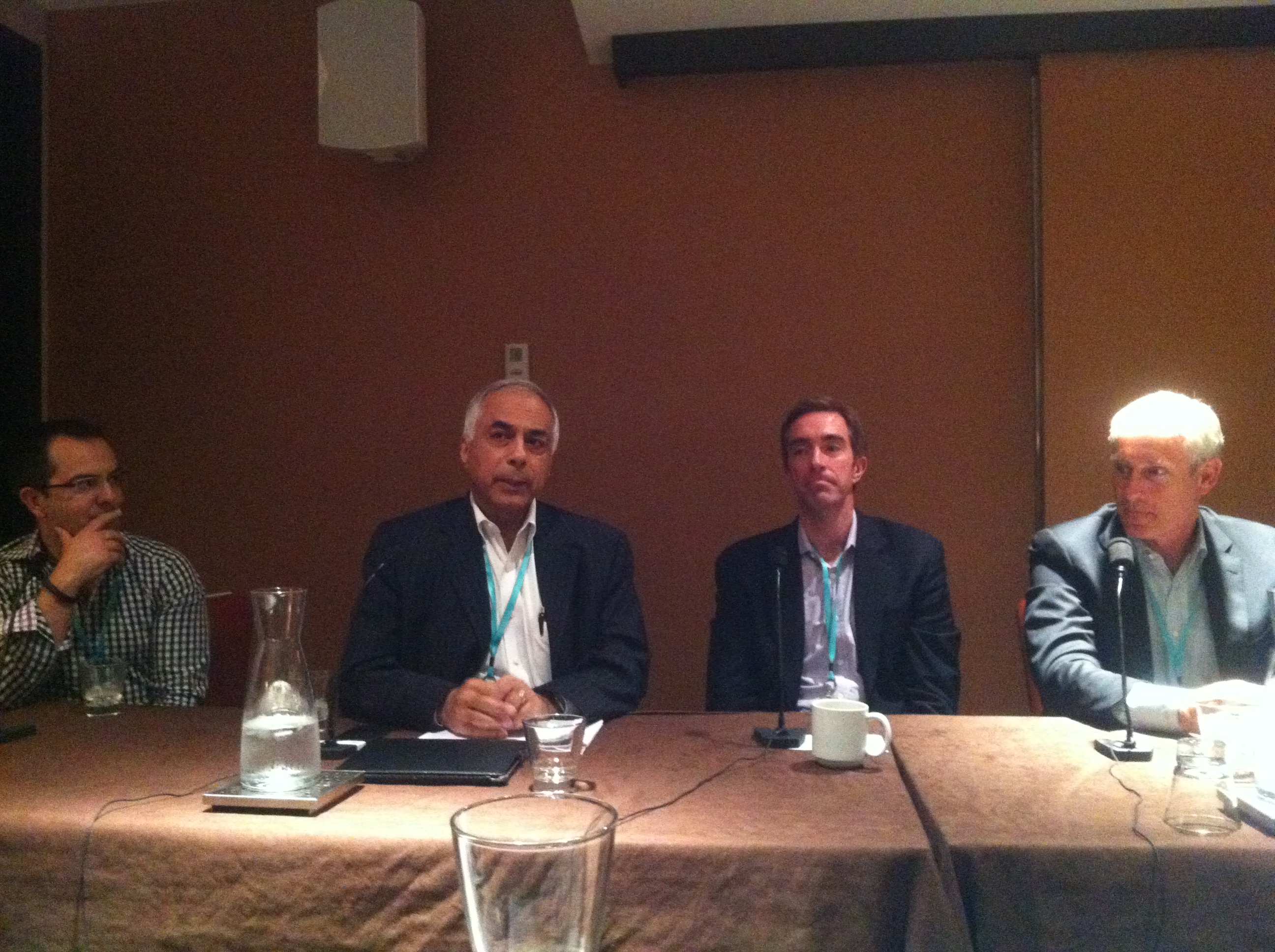 SAN FRANCISCO — It’s a great time for health startups to raise money, according to some of the biggest names in health investing.
SAN FRANCISCO — It’s a great time for health startups to raise money, according to some of the biggest names in health investing.
Funding for digital health grew dramatically in 2012 and is continuing to climb. The health market is pegged at $6 trillion worldwide, and there are far-reaching opportunities for entrepreneurs to transform how we practice health care. At the same time, funding for life sciences and medial devices is drying up. Health IT is the darling of investors, and venture capital firms are all trying to get in on the action.
“There are so many carrots and sticks to take advantage of here and venture capitalists like to invest in big trends,” said Stephen Kraus, a partner and Bessemer Venture Partners. “You can’t get in on a bigger trend than 20 percent of the GDP. This is a sector with massive problems, and the government throwing money at it. You would have to be missing a brain not to pick up on this fact.”
Krause participated in a panel discussion about venture capital and growth equity in health IT at VentureBeat’s HealthBeat conference today. The panel discussed trends in health IT/digital health as well as what investors look for in portfolio companies and success stories. Also on the panel was Dana Mead, a partner at Kleiner Perkins Caufield & Byers who focuses in life sciences investments. He said despite the fact that interest and funding is moving away from life sciences at the moment, this is a period of transition and evolution, and like digital health, there are plenty of opportunities for innovation.
“With digital health, you see traditional life sciences investors and traditional IT investors looking at the same space,” Mead said.”There are a number of companies that could be successful in this second wave of digital health, and everyone is experimenting with business models and finding out who will pay for these products and services. It all goes in cycles. Frankly life sciences got too big and will grow back in a big way.”
Mead said that most consumers view health care as an entitlement and that investors are looking for products that have a clear return-on-investment (ROI). Promod Haque, a partner at Norwest Venture Partners, approaches the sector from an IT background and is interested in companies that bring traditional IT concepts to health care. Like Mead, he emphasized the importance of figuring out a viable business model.
“The big question is ‘Who pays for these things?’ Haque said. “If you are selling health care services to large enterprise providers, you have to convince them that there will be a fast ROI and then investors are interested. There is a general awareness among institutional and strategic corporate investors that this health vertical is very important going forward. Too many companies will get funded eventually, and then there will be a consolidation play. Big companies are not growing, and their revenue is declining, which is where acquisitions come in.”
Most of the conversation focused on enterprise products geared towards clinicians, healthcare providers, and payers. Warren Hogarth is a partner at Sequoia Capital, which has made investments in 20 health companies. He said that in addition to IT products, consumer products also have large and global potential. Certain products and business models may work in the U.S., but not in international markets where the health care industry is not structured in the same way. Mobile technology is growing fast and building products that help consumers manage and control their health care is universally appealing.
“Traditionally, health care is very silo’d– it is different in the U.S.,” he said. “Mobile is a ubiquitous world. On the consumer side, there are opportunities to be a global business from day one.”
Rock Health predicted 2013 would be a record year for digital health. VC interest in this sector is high, but this sector is still new. It came into being over the past couple years in response to seismic shifts in national policy, cultural attitudes, and new forms of technology. It is still early days, and these investors’ strategy is to find forward-thinking, experienced entrepreneurs who can lead the way into the next generation of health care, and generate large returns while they are at it.
VentureBeat's mission is to be a digital town square for technical decision-makers to gain knowledge about transformative enterprise technology and transact. Learn More
